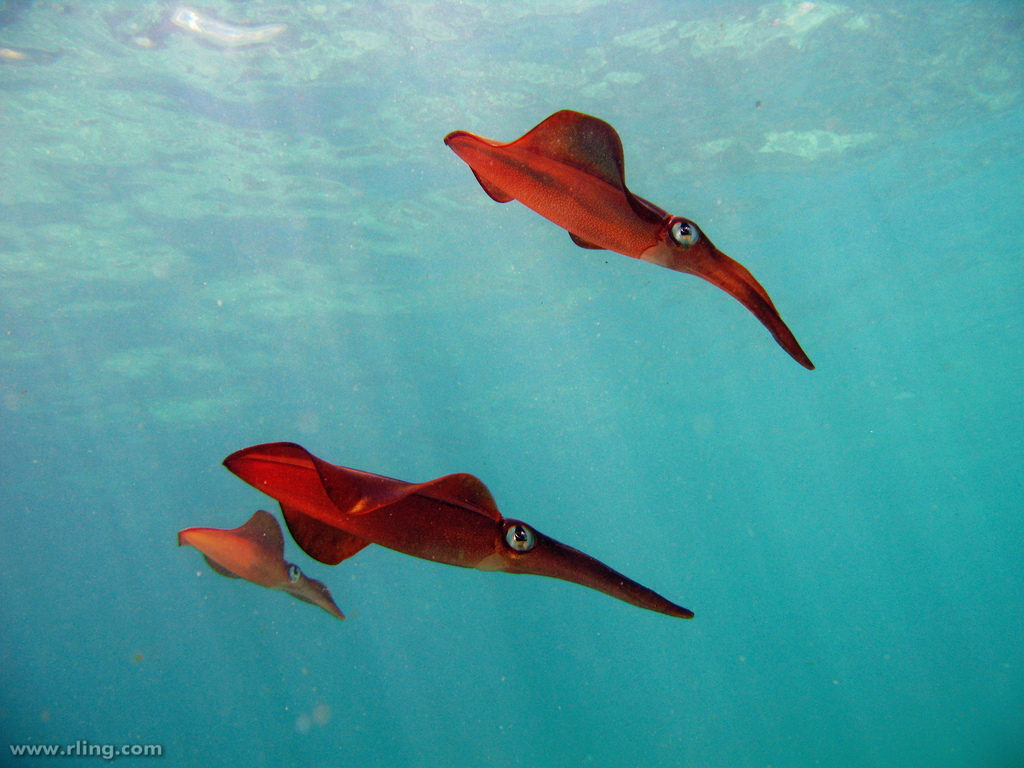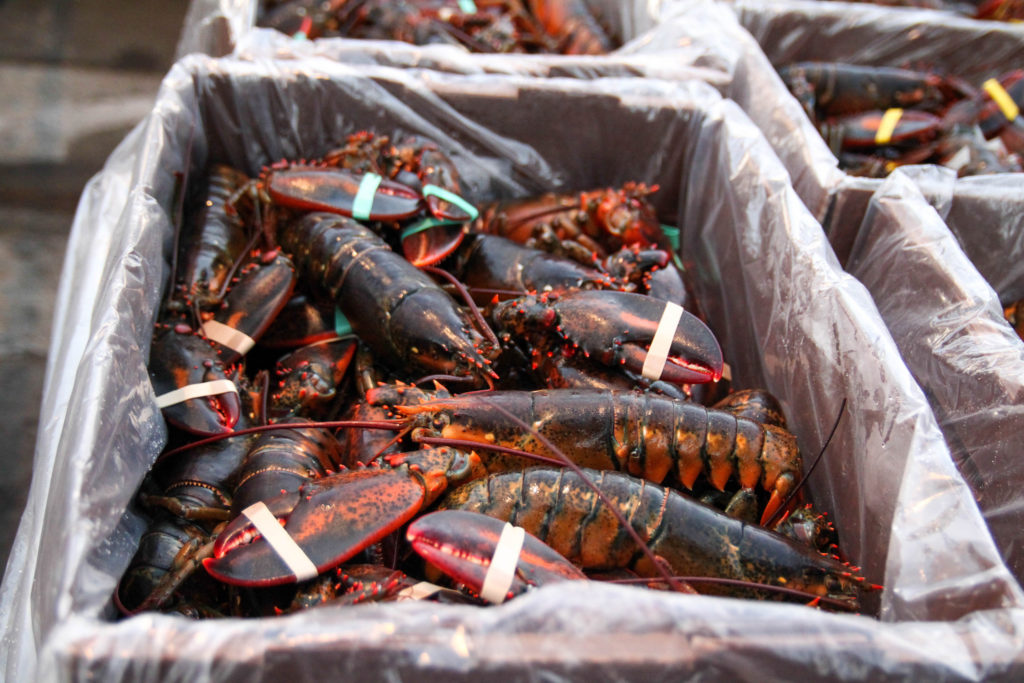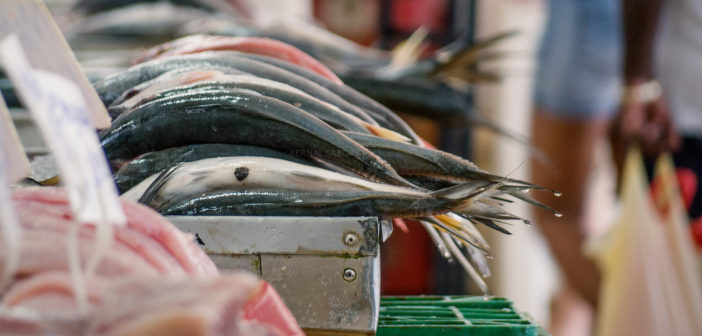The Swiss anti-speciesist organization PEA (Pour l’Egalité Animale [For Animal Equality]) has launched a global campaign called Another Perspective on Fish to raise awareness of aquatic animal sentience and the ways aquatic animals suffer at the hands of humans.
Part of this campaign will be the World Day for the End of Fishing (WoDEF), on March 30th, which will call for an end to fishing and fish farming on ethical grounds. Sentient animals, aquatic or not, have their own interests that must be taken into account. More than 70 cities in 17 different countries participated in WoDEF events in 2018.
Parts one and two of the informational exhibition were previously published on Animal People Forum. Part one focused on aquatic animal sentience, and part two explored various forms of aquatic animal exploitation, such as fishing and fish farming. Below you will find part three, explaining why, from an ethical point of view, we should abolish fishing and fish farming, and explaining what it means to take part in this global campaign.
Why should we stop fishing?
Because fish and other sentient aquatic animals are not recognized as individuals. Because they are not protected in any way. Because a huge majority of the animals killed by humans globally are aquatic animals killed for human consumption or to feed other farmed animals. Because their suffering and deaths are largely unknown to the public and often ignored by animal rights campaigns.
For all these reasons and more, The World Day for the End of Fishing calls for the abolition of fishing and fish farming.
The thousands of billions of victims of fishing
Thousands of billions of fish, cephalopods and crustaceans are killed every year. A large number of these animals go through agony in the open air, are bled to death and eviscerated while still conscious or are thrown back into the water using pitchforks. Others die by bursting open from severe decompression as fishing nets are hoisted up from marine depths. As for the prisoners of fish farms, they live in horrible conditions, in filthy, crowded spaces filled with parasites.

Southern calamari squid, swimming free and alive. Many cephalopods are unnecessarily killed for human consumption. Image credit Richard Ling, CC BY-SA 3.0.
The concealed lives of fish
Because fish do not live on land, because they are not mammals like us and because they do not express emotions through facial gestures or audible cries, they are subjected to an acute form of speciesism. Since they do not look like us, we don’t identify with them or their plight, we underestimate their capacity to experience suffering and pleasure, as well as their mental and social capacities. We don’t think about them, nor about how they are captured and farmed when we see their dead bodies displayed in markets or used as ingredients in products of various kinds. This concealment makes a day devoted to refusing their exploitation more than necessary.
Fishing is not necessary
Those of us who have access to a variety of food sources don’t need to eat fish or other animals to live healthy lives. We can eat healthy diets without contributing to the massacre. Helping people whose income depends on fishing transition to another source of income is possible, in part through incentives and economic reforms.

Live lobsters in a market await being boiled and eaten. Most people see this and don’t give a thought to what the lobsters are experiencing, which this campaign aims to change. Image credit Neon Tommy, CC BY-SA 3.0.
A question of rights
It is widely accepted that humans should not inflict unnecessary suffering and death on animals. Given the immense harm humans cause to fish and other aquatic animals, and given the massive number of individuals affected, we should put an end to their exploitation and stop killing them for their flesh. The enslavement and killing of other animals for human consumption cannot be justified.
The demand to end fishing and fish farming is an assertion of rights. Like all sentient beings, fish and other aquatic animals should have recognized fundamental rights: the right to life, freedom and physical integrity.
The World Day for the End of Fishing (WoDEF)
The World Day for the End of Fishing is held the fourth Saturday of March every year. In 2019, it will be held on March 30. The event calls public attention to the existence of sentient beings whose lives we usually ignore and who are subjected to routine violence. It offers an opportunity to progressive people and organizations to condemn the exploitation of aquatic animals and express solidarity with them. WoDEF hopes to obtain the support of the greater environmental and animal protection movements. Fish, cephalopods and crustaceans live meaningful lives and their interests must be defended by campaigns for marine protection.
WoDEF provides an opportunity to call publicly for the abolition of the exploitation of aquatic animals, that is, the prohibition of fishing and fish farming. This prohibition will not come in a day. We need to speak out now on how these animals are treated. The aim of WoDEF is to attract public attention to the exploitation of aquatic animals so that this day may come.
The “Another Perspective on Fish” campaign
WoDEF is part of a larger campaign entitled “Another Perspective on Fish,” which attracts public attention to aquatic animals and demands that an end be put to their exploitation. The campaign originated in Switzerland and France in 2016 and took an international turn in 2017. It asks animal rights, vegetarian, vegan and environmentalist organizations and citizens to take part in the campaign by sharing information and organizing media events simultaneously across the world. See more about how you can take part here.
The campaign will assume a diversity of forms:
- The creation of a reference website, devoted specifically to fish, fishing, and fish farming, in English and other languages.
- The organization of conferences on aquatic animals, fishing, etc.
- The translation across languages of information for international dissemination (leaflets, exhibitions, videos, banners and images for social media, etc.). The source files will be freely distributed upon request to any individual or organization.
- A 12 panel exhibition devoted to aquatic animals and their exploitation available in English, French, Spanish, Portuguese, German, Italian, Hebrew, Japanese and Chinese. The source files are freely available upon demand and freely adaptable for their own purposes. The exhibition can be seen on the WoDEF website.
- A call for artists to contribute to the campaign by creating artwork around the “aquatic question.” Artwork will be published on the website and social media.
- Legal actions to attract public attention to the plight of aquatic animals and reform the laws that protect them.
- Other forms of public action: happenings, protests, interventions in schools, contests, etc.
For every aspect of the campaign, we aim to establish collaborations with animal rights, vegetarian and vegan organizations, as well as with environmental groups. Every individual and every organization is invited to participate in the World Day to End Fishing and the “Another Perspective on Fish” campaign, as well as to organize events all year long that focus on the treatment of aquatic animals.
This portion of the “Another Perspective on Fish” campaign can be seen in its original form here and here.
Featured image: A stack of fish in a fish market in Panama City, Panama. Most people see scenes like these without a thought to the sentience of the fish or the suffering they experienced before ending up here. Image credit Bernal Saborio, CC BY-SA 3.0.





